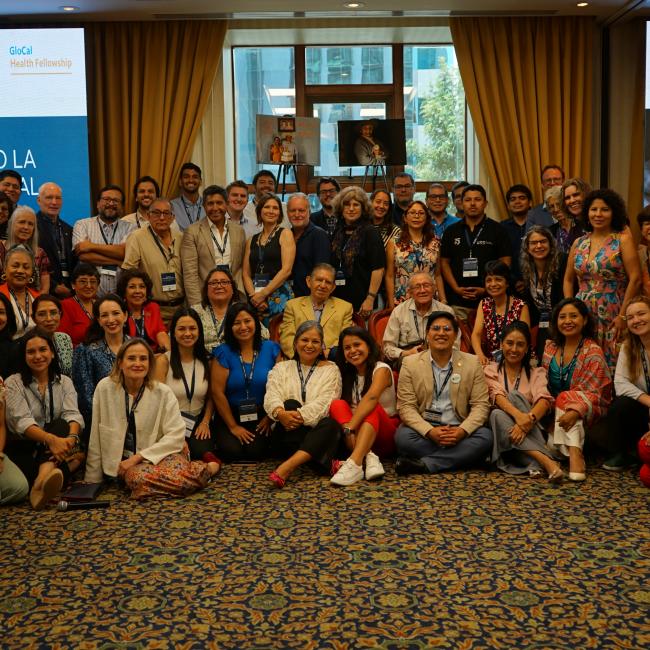New Age Diplomacy Set To Improve Brain Health
SAN FRANCISCO, CA—Coordinated from the Global Brain Health Institute (GBHI) at University of California, San Francisco (UCSF), and Trinity College Dublin, a team of diverse experts from six countries and 23 institutions has developed ‘Brain Health Innovation Diplomacy’ (BIND), a novel form of diplomacy that aims to manage technological innovation on brain health.
In a paper that appears in International Psychogeriatrics, Dr Walter Dawson, DPhil; Dr Harris Eyre, MD, PhD; and others introduce BIND and consider the effects of ‘deep’ technologies—including infotech, biotech, genomics, and robotics—on brain health screening, prevention, diagnosis and management.
“The population of people living with illnesses affecting brain health is increasing rapidly around the world” said Dawson, an Atlantic Fellow for Equity in Brain Health at GBHI and Assistant Professor at Oregon Health & Science University. “The burden of dementia will be disproportionately experienced in low- and middle-income countries.”
To understand the benefits and drawbacks of deep technologies on brain health, the authors consider a few examples. For instance, genomic biomarkers help to predict and screen for various forms of dementia, but they mostly only benefit people living in advanced economies. Additionally, dementia-related apps can be powerful tools for people with dementia and their families, yet the majority of these apps do not have data privacy policies, leaving users vulnerable to personal data exposure.
“Given the rapidly advancing technological innovations impacting brain health, it is paramount to optimize the benefits and mitigate the drawbacks of such technologies,” said Eyre, a brain health technology executive and senior author on the paper.
These issues compelled the team to explore the role of novel solutions, and to recognize and manage real and potential risks of digital platforms. This exploration led to insights from technology diplomacy, which acknowledges the key roles of technology and digitalization on social, political and global influence. Ultimately, the team developed a set of recommendations to train and educate new Brain Health Innovation Diplomats. Recommendations included the development of a toolkit for BIND practitioners to enhance their efficacy, suggestions on how to involve consumers in brain health innovation, design, research, ethics and advocacy, theoretical and experiential training opportunities, as well as suggestions on how to track the impact and outcomes of the BIND model.
“This model is the kind of global and cross-disciplinary work to improve brain health that GBHI was set up for,” said Professor Victor Valcour, MD, PhD, Executive Director of the GBHI. “It is an example of fresh thinking resulting from the clash and melding of different disciplines. Our Atlantic Fellows are now working to further advance this model and field’.
Additional collaborators include Kylie Ternes from Baylor College of Medicine, Dr Vijeth Iyengar of US Department of Health and Human Services, Dr Laura Booi of GBHI, Professor Agustin Ibanez of the Argentinian Institute of Translational and Cognitive Neuroscience, Associate Professor Ipsit Vahia of Harvard University, Professor Chip Reynolds III of University of Pittsburgh, Professor Steven DeKosky of University of Florida, Professor Jeffrey Cummings of Cleveland Clinic, Associate Professor Carla Perissinotto of UCSF, Professor Jeffrey Kaye of Oregon Health and Science University and Professor Bruce Miller of UCSF.
Reference
Ternes et al. (2020) Brain health INnovation Diplomacy (BIND): A Model Binding Diverse Disciplines to Manage the Promise and Perils of Technological Innovation. International Psychogeriatrics. 1. https://doi.org/10.1017/S1041610219002266
Authors

Niall Kavanagh
Communications Officer
GBHI Members Mentioned

Walter Dawson, DPhil
Health Policy Researcher

Laura Booi, PhD, MA
Social Gerontologist

Bruce Miller, MD
Founding Director, University of California, San Francisco


